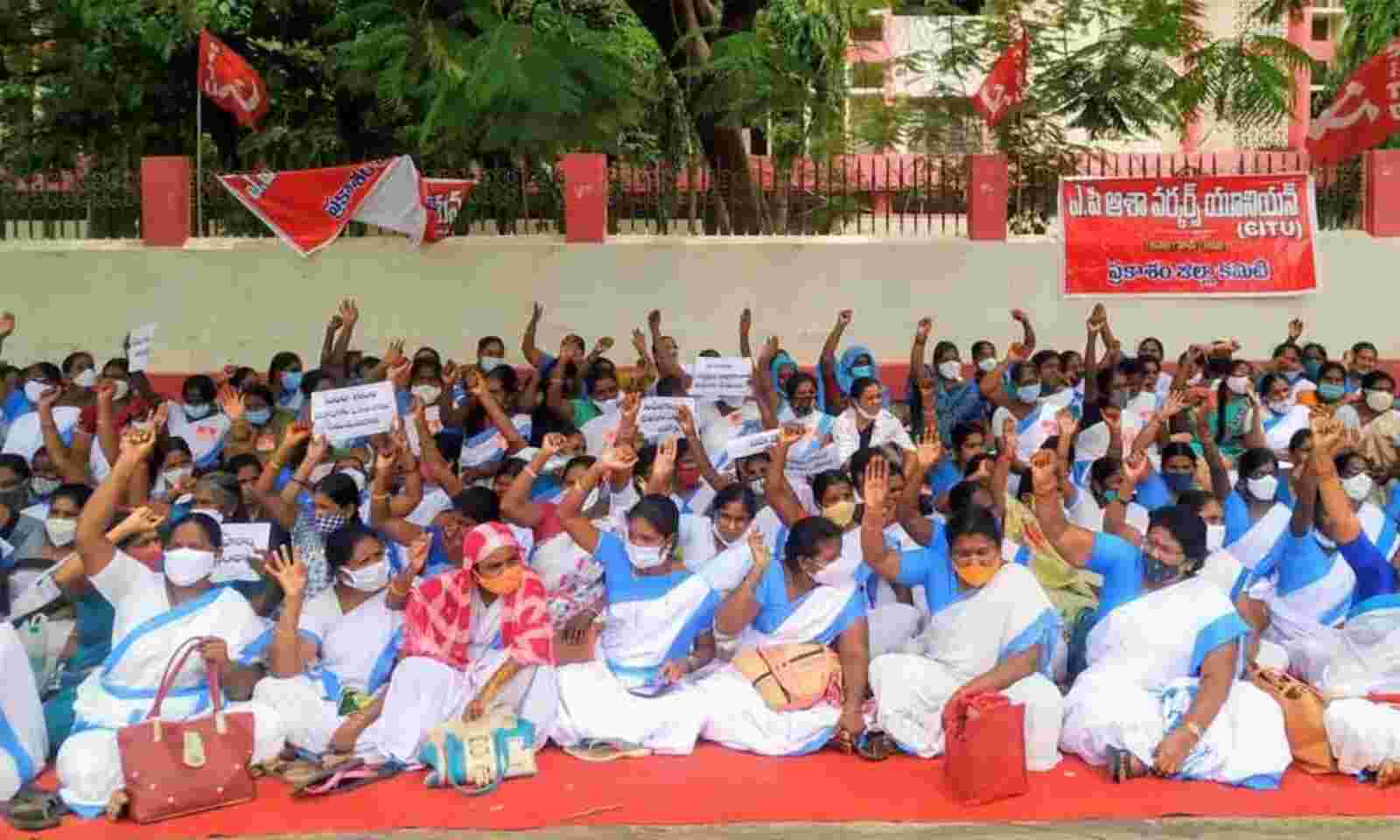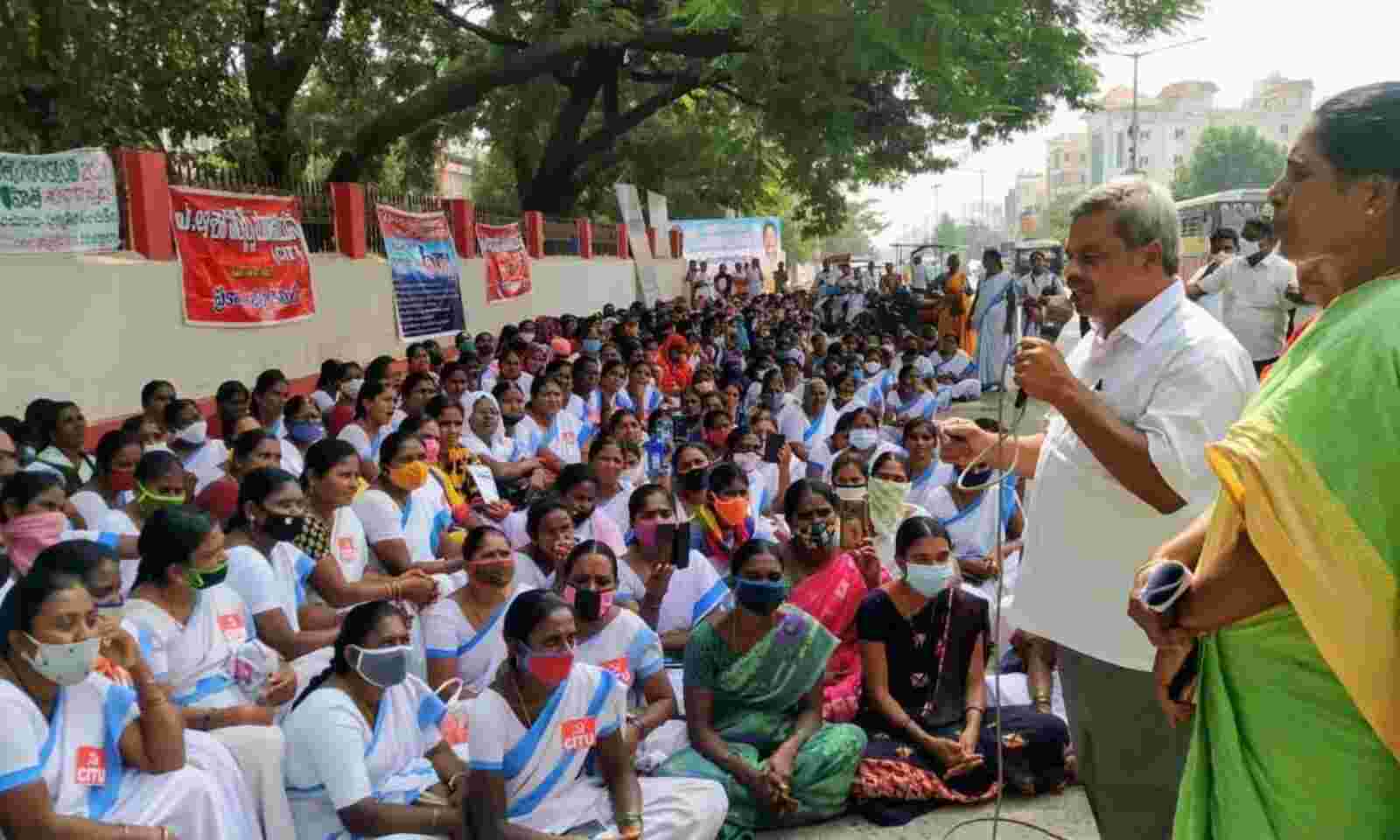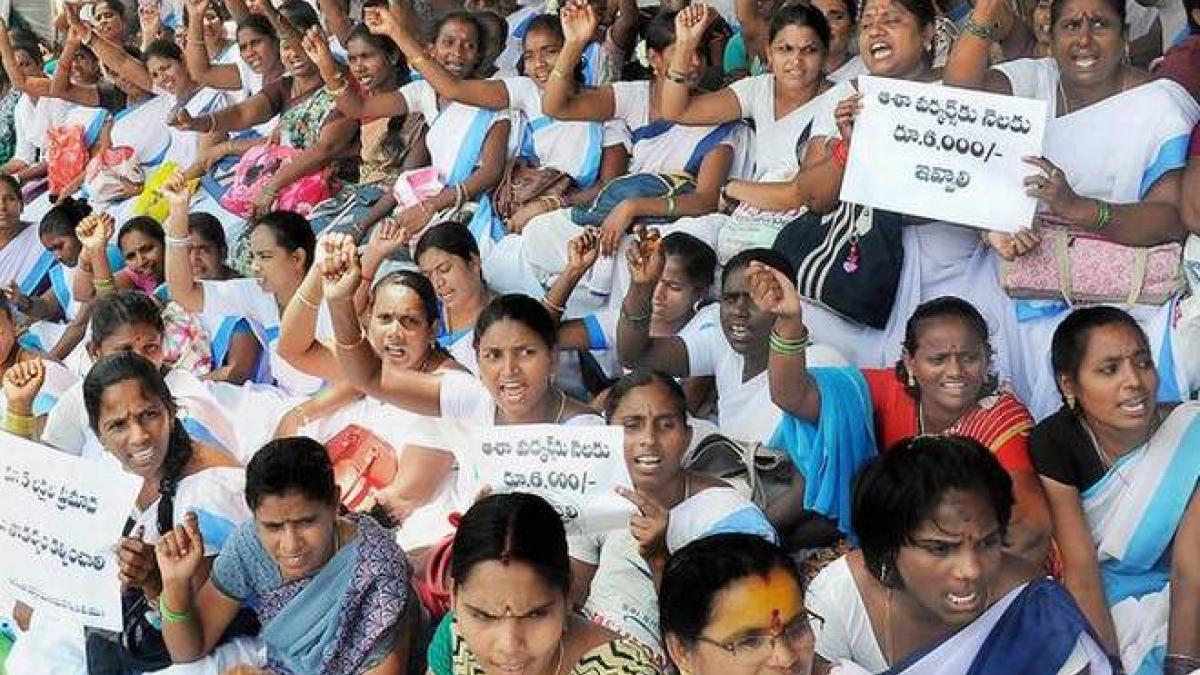ASHA workers when gone on a strike had started the real worth of health workers in the eyes of the government authorities. they need long demanded better pay and insurance and this can be a result of those unfulfilled demands. ASHAs besides forming the backbone of public health in India are at the forefront of the COVID-19 outbreak. they need to be conducting door-to-door surveys and are actively involved in screening migrant workers returning home. this is often beside their regular duties that are far-reaching.

ASHAs in villages are instrumental in bringing health to the doorsteps of the many who have little or no access to health otherwise, especially women and kids.
They counsel women on nutrition, delivery, contraception and pregnancy, birth preparedness and delivery, breastfeeding, immunization, and child care. they’re repositories of data on hygiene, hand washing, safe water, and toilet practices, sexually transmitted infections, etc., and nodal points for the provision of sanitary napkins, iron, and vitamin B complex tablets, and oral rehydration solutions, contraceptives, essential drugs, and disposable delivery kits.

It’s the hard work of ASHAs that has been credited with the eradication of polio. after all most health indicators measured by a host of human development indices and recorded in reports like the National Family Health Survey are the results of the vital work of those grassroots workers. they’re liable for an increase in India’s immunization coverage, institutional deliveries, and reduction in maternal and child mortality.
Ministries across the board – Ministry of Health and Family Welfare, Ministry of girls and Child Development, Ministry of potable and Sanitation, and even Ministry of Panchayati Raj- depend upon the efficient network of ASHAs for delivering a spread of services and as a platform for access. they create possible functioning of major programs like the National Health Mission and Integrated Child Development Scheme (ICDS). they’re the lifeline of health and rural development services across India.

ASHAs haven’t been paid in months. Moreover, they don’t have PPE and are regularly putting their and their family’s health in danger.
They are paid as little as INR 2000-5000 a month and several others have succumbed to COVID-19 within the past month and are regularly visiting areas with many cases. Nearly 6 lakh ASHAs are expected to travel on a strike and are supported by ten central trade unions. aside from inadequate assistance from the govt during a recent pandemic, workers are minimum wages of INR 21,000 per month and a pension of INR 10,000 per month besides other benefits of ESI and EPF. There are a few million ASHA workers across the country and it’s expected more will join.

If the pandemic has made one thing clear it’s the importance of frontline physicians. For surveillance, control, and treatment of infectious diseases, a zealous and committed health cadre from within the community with great reach is crucial. The pandemic has also shown the fragility of health systems in addressing health calamities of dimensions such as COVID. this suggests that health care has got to reach people’s doorsteps. Moreover, with infectious diseases, it’s quite evident that prevention is healthier than cure.
The importance of unpolluted water and the use of toilets and regular hand washing can prevent the majority of infectious diseases and are tried and tested mantras even before the spread of COVID. ASHAs are instrumental in spreading information about the identical.
)
How much faith they need within the state and its health care depends on how satisfied they’re with their interaction with and also the services of ASHAs. they’re more likely to require regular vaccinations, want institutional deliveries, change for better health behaviors and follow rational approaches to raising children, planning healthy meals, seeking early treatment and diagnosis, planning and reducing misuse or unhealthy habits like smoking. Similarly, frontline medical experts who are well paid and guarded are more likely to perform better. this will have a cumulative effect on the overall health of the state and every one of the symptoms.

